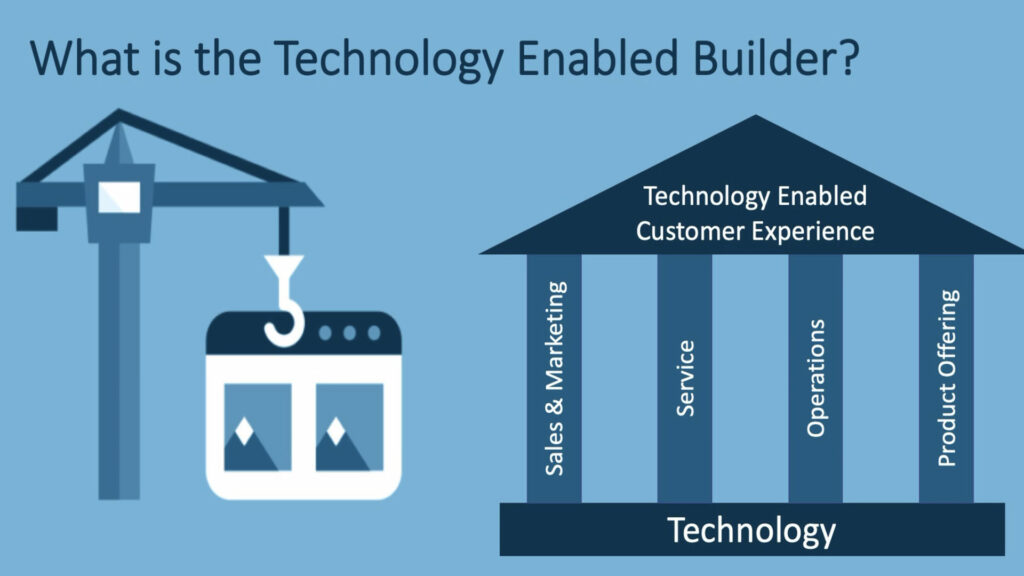
Builder Innovator Week 2023 – Our Takeaways
The homebuilder market is undergoing dramatic changes and technology is underpinning most of them. At the recent Builder Innovator Week in Phoenix, the bluesalve team saw – and presented – the latest trends in technology for builders of single- and multi-family residences. Here are a few of our takeaways…
Technology is now an expectation
“If we think we’re going to excite home buyers with a smart lock or thermostat, or a doorbell or sprinkler system, well, we’re not. We now just have to have them,” advised keynote speaker Tim Costello, CEO of BDX, a marketing firm focused on the builder market. ” Costello counseled builder attendees to focus instead on delivering great experiences with technology. In this regard, we think AI is going to be a big help. “Voice control, natural language processing and AI are going to change the game in residential and MDU tech,” says Senior Partner Lew Brown. “Builders won’t be as concerned that they’re integrating technologies that are too complex for homeowners to use. Between more powerful edge devices and software like ChatGPT, the technology barrier for ordinary consumers may finally be broken.”
Obsolescence is a major concern for builders
Obsolescence a problem that the builder industry sees up close; built-in technologies need to be the most future proof. Senior Partner Avi Rosenthal, who chaired the HiVOL (high volume) track for Techomebuilder attendees, is sympathetic. “We don’t blame builders for being confused. There are a lot of technologies out there, and new ones appear constantly. While it might seem like a maze, there are ways to prepare against obsolescence.” Rosenthal also noted that “It’s important to remember that homeowner applications are changing too. “Since the pandemic, there’s been strong interest in the ‘home’ part of the hybrid work experience. That’s not just technology, like having strong Wi-Fi. It’s all the things that go into an effective remote workspace, like proper lighting and flexible floor plans where rooms can provide multiple roles.”
Open or closed garden?
All new constructions are now expected to have smart home infrastructure in place, but going beyond those basics into actual controllable devices, the key decisions for builders become more daunting. Today, makers of home control systems are facing increasing pressures from outside forces like Apple, which just announced a new smart lock protocol called Aliro, based on its popular HomeKey technology. Looking at the landscape of available home control systems, Senior Partner David Kaplan noted that “The walled garden approach taken by the traditional smart home companies is still alive and well it seems. But for how much longer?” The Aliro initiative is an interesting case because it’s both open (that is, licensable by non-Apple companies) and closed, because, well, it’s Apple. With Aliro, an iPhone can open any lock that uses the protocol, thus circumventing the need for a separate smart lock app.
Changing trends among home buyers
Today’s home buyers aren’t necessarily the traditional nuclear families that have driven the housing industry forever. Americans are staying single longer and need less living space than families. This is spurring a trend toward smaller “single family” constructions and also a greater emphasis on MDU residences. It’s important to remember that these home buyers skew young, and as a result, are generally comfortable with technologies. Builders that don’t offer at least basic smart home infrastructure will be left behind. As for existing buildings, many of them are being retrofitted – not just with new technology, but with new living terms. There’s now a significant market in converting single-family housing stock into rental properties. Speaking of rentals, many of these new, smaller single-family homes are meant to be easily utilized as timeshares, a la AirBnB. Integrated security and other remote monitoring features are a must for these applications.
Who’s going to do all this?
With so many options on the table for home builders, it’s important for builders to have partners at their side that can advise on protocols, equipment and system support. More than ever, the role of the technology integrator is critical – not only for specifying product, but for getting it done in time for sales and eventual occupancy. At the same time, it’s likely that the majority of smart home devices that young people (the ones buying homes) use today are DIY and portable and require few technical needs beyond electricity and Wi-Fi. How will integrators fit into a paradigm where consumers prefer to bring their own technologies into a new home, rather than being sold into a system that’s waiting for them? Says Rosenthal, “The need for expertise is always going to be there for the builders. The right decisions are rarely as simple as either/or.”
Looking to make headway with technologies for the builder market? We can help. Contact us here.
# # #


